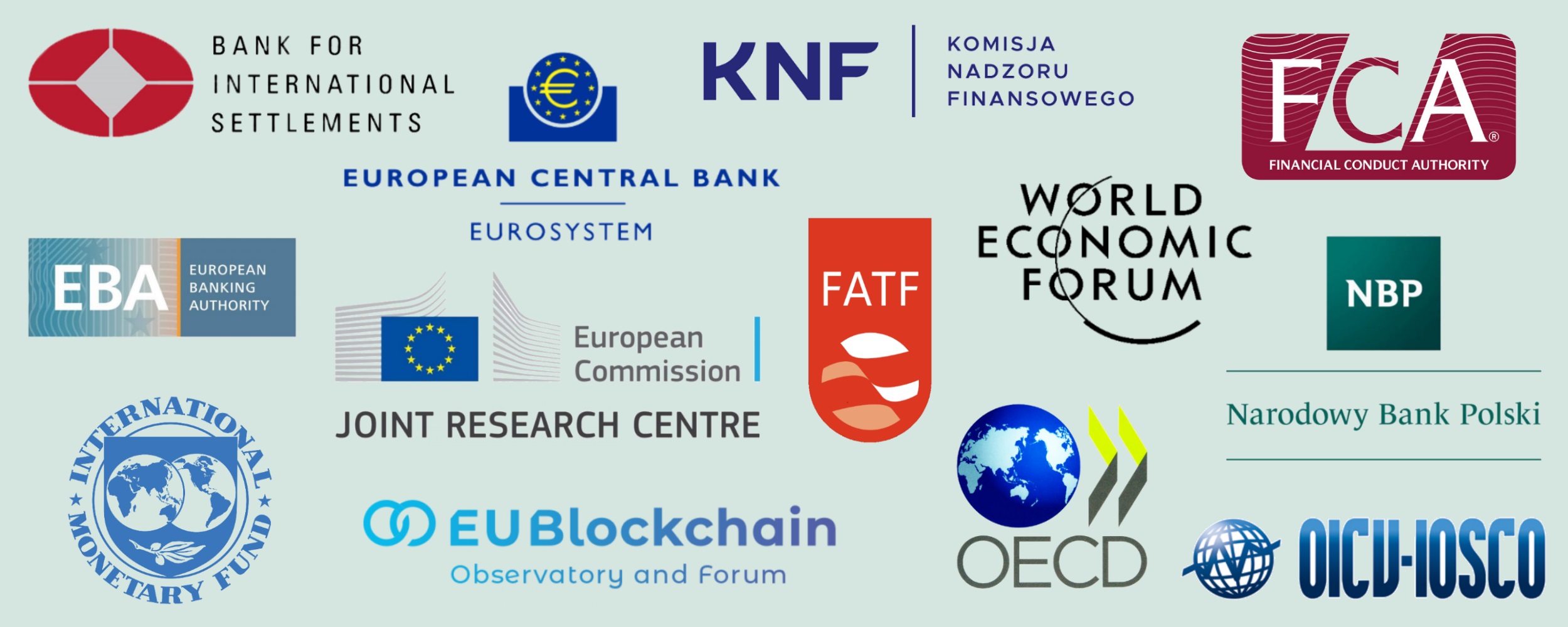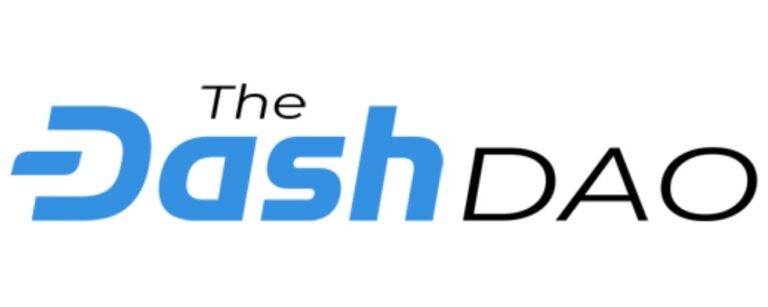W ostatnich latach została opublikowanych już całkiem pokaźna liczba raportów dotyczących większości składowych zjawiska, jakim jest rozwój ekosystemu blockchaina (gospodarki stokenizowanej): technologii blockchain, kryptoaktywów, zdecentralizowanych usług finansowych (DeFi), wirtualnych walut, walut cyfrowych, walut cyfrowych banków centralnych (CBDC), stablecoinów, tokenizacji itp.
Raporty te przygotowały 'całkiem’ ważne instytucje i organizacje, właściwie to trudno znaleźć liczące się organizacje narodowe czy międzynarodowe, które jeszcze nie wypowiadały się na te tematy:
- Bank of International Settlements (BIS) – Bank Rozrachunków Międzynarodowych
- European Banking Authority (EBA)
- European Blockchain Observatory and Forum (EU BOF)
- European Parliament Committee on Economic and Monetary Affairs (EU ECON)
- European Commission Joint Research Centre (EU JRC)
- European Central Bank (ECB) – Europejski Bank Centralny
- Financial Action Task Force (FATF) – Grupa Specjalna ds. Przeciwdziałania Praniu Pieniędzy
- Financial Conduct Authority (FCA)
- International Organization of Securities Commissions (IOSCO) – Międzynarodowa Organizacja Komisji Papierów Wartościowych
- International Monetary Fund (IMF) – Międzynarodowy Fundusz Walutowy
- Komisja Nadzoru Finansowego (KNF)
- Narodowy Bank Polski (NBP)
- Organisation for Economic Co-operation and Development (OECD) – Organizacja Współpracy Gospodarczej i Rozwoju
- U.S. Department of the Trerasury
- World Economic Forum (WEF) – Światowe Forum Ekonomiczne
Poniżej przedstawiam listę z odnośnikami do raportów, które wg mnie warto przynajmniej przeskanować. Kolejność alfabetyczna. Lista jest maksymalnie uproszczona: instytucja firmująca, rok, tytuł i link. Lista zawiera wg mnie najważniejsze raporty z ostatnich lat czy też „okazjonalne” czy tematyczne opracowania. Nie zawiera typowych artykułów naukowych, o popularnonaukowych czy innych rodzajach nie wspominając.
- BIS (2018) Central bank digital currencies – LINK
- BIS (2018) Sound Practices: implications of fintech developments for banks and bank supervisors – LINK
- BIS (2020) Central bank digital currencies: foundational principles and core features report no. 1 in a series of collaborations from a group of central banks – LINK
- Consumers International (2017) Banking on the future: an exploration of FinTech and the consumer interest – LINK
- Deloitte (2017) Technologia Blockchain i jej potencjał w podatkach – LINK
- Deloitte (2021) Global Blockchain Survey – LINK
- EBA (2014) EBA Opinion on ‘virtual currencies’ – LINK
- ECB (2012) Virtual Currency Schemes – LINK
- ECB (2015) Virtual currency schemes – a further analysis – LINK
- ECB (2019) Crypto-Assets: Implications for financial stability, monetary policy, and payments and market infrastructures – LINK
- ECB (2020) Stablecoins: Implications for monetary policy, financial stability, market infrastructure and payments, and banking supervision in the euro area – LINK
- ECB (2020) Report on a digital euro – LINK
- EU BOF (2018) Blockchain and the GDPR – LINK
- EU BOF (2018) Blockchain for Government and Public Services – LINK
- EU BOF (2018) Blockchain Innovation In Europe – LINK
- EU BOF (2018) Government Services and Digital Identity. Workshop Report – LINK
- EU BOF (2019) Blockchain and Digital Identity – LINK
- EU BOF (2019) Blockchain in trade finance and supply chain – LINK
- EU BOF (2019) Scalability Interoperability and Sustainability of Bloickchains – LINK
- EU BOF (2020) Blockchain and Cybersecurity – LINK
- EU BOF (2020) Blockchain and the future of digital assets – LINK
- EU BOF (2020) Blockchain use cases in healthcare – LINK
- EU BOF (2020) Convergence of blockchain, AI and IoT – LINK
- EU BOF (2020) Governance of and with blockchains – LINK
- EU BOF (2021) Central Bank Digital Currencies and a Euro for the Future – LINK
- EU BOF (2021) Demystifying NonFungible Tokens (NFTs) – LINK
- EU BOF (2021) Energy Efficiency of Blockchain Technologies – LINK
- EU ECON (2020) Crypto-assets – Key developments, regulatory concerns and responses – LINK
- EU JRC (2019) Feasibility study and prototyping of a blockchain-based transport service pricing and allocation platform: final report – LINK
- FATF (2014) Virtual Currencies. Key Definitions and Potential AML/CFT Risks – LINK
- FATF (2021) Virtual Assets and Virtual Asset Service Providers. Updated Guidance for Risk-Based Approach – LINK
- FCA (2019) Guidance on Cryptoassets. Financial Conduct Authority – LINK
- FinTech Poland (2021) DeFi – zrozumieć zdecentralizowane finanse – LINK
- IMF (2019) Fintech Notes. The Rise of Digital Money – LINK
- IMF (2021) Global Financial Stability Report: COVID-19, Crypto, and Climate – LINK
- IOSCO (2017) IOSCO Research Report on Financial Technologies (Fintech) – LINK
- KNF (2020) Stanowisko Urzędu Komisji Nadzoru Finansowego w sprawie wydawania i obrotu kryptoaktywami – LINK
- KPMG – Pulse of Fintech – LINK
- NBP (2021) Pieniądz cyfrowy banku centralnego – LINK
- OECD (2020) New digital technologies to tackle trade in illegal pesticides – LINK
- OECD (2020) Opportunities and Challenges of Blockchain Technologies in Health Care – LINK
- OECD (2020) The Tokenisation of Assets and Potential Implications for Financial Markets – LINK
- OECD (2020) The uncertain promise of blockchain for government – LINK
- OECD (2021) Regulatory Approaches to the Tokenisation of Assets – LINK
- Outlier Ventures (2019) Mapping Decentralized Finance (DeFi) – LINK
- US Treasury (2021) Report on Stablecoins – LINK
- WEF (2015) Deep Shift. Technology Tipping Points and Societal Impact. Survey Report – LINK
- WEF (2018) Blockchain Beyond the Hype. A Practical Framework for Business Leaders – LINK
- WEF (2021) Decentralized Finance (DeFi) Policy-Maker Toolkit – LINK
- WEF (2021) Digital Currency Governance Consortium. White Paper Series. Compendium Report – LINK
- ZBP (2021) Blockchain w sektorze bankowym – LINK
Jeśli pominąłem coś znaczącego, proszę o feedback – kontakt@blockchainexperts.pl








